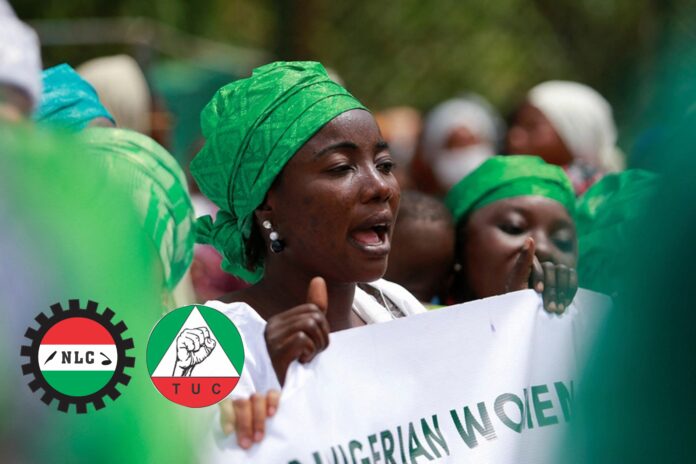David Polang Jatau, a trade unionist can be reached on jdpolang@gmail.com
Introduction
Since the declaration by the United Nations of the years 1976-1985 as the UN decade for women, there have been efforts by governments and organisations to encourage more women’s participation in governance and developmental efforts. One of such effort was the national workshop organized by the Michael Imoudu Institute for Labour Studies in 1994 with the aim of addressing the in-adequate participation of women in trade unionism. It was also to encourage the greater participation by women in the decision making processes and administration of trade unions. With the return of democracy in Nigeria, efforts were also intensified to encourage women participation in leadership.
In the trade unions, the gap between men and women is a reflection of the beliefs and practices in the wider society. Although, trade unions are supposed to be democratic and empowering organisations, there is, ironically, a lack of awareness of gender issues amongst members. Consequently, negative gender practices are common, these are well entrenched. Women have little representation at the leadership level and decision-making bodies; where they manage to feature, they are elected or appointed into the “women’s socially expected roles of welfare officers or treasurers”.
NLC, TUC AND THE PARTICIPATION OF WOMEN IN TRADE UNIONISM: A SURVEY
In 2024 according to the World Bank, nearly half of the female population was engaged in the labour force. This shows the extent to which women are actively working. Despite this, women continue to take the back seat with decision making in the labour movement. There is therefore a need for an assessment of the extent of women participation at the various organs of the trade unions from the labour centres, the trade unions down to the various workplaces. We have to chart a way for a more rigorous mobilization of women workers to take a more serious interest in trade union activities.
Some efforts have been undertaken to ensure greater participation of women in the union leadership. The most profound and of global impact was the declaration of the 1975-1985 as a decade for women by the United Nations and the subsequent convening of the Beijing Conference in 1995. A year earlier, the Michael Imoudu Institute for Labour Studies (MINILS) organized a workshop on women in unionism. This was to address the low participation of women in trade unionism. The workshop took place in Jos and was partly funded by the International Labour Organization (ILO). The outcome was the publication of a book titled Women and Trade Unionism in Nigeria.
From the late 1990’s, the participation of women in Trade Union Leadership and decision making process increased. This has much to do with the twin events of the workshop for women in unionism and the 1995 Beijing Conference. It was observed that many women took active part in unionism during this time. Some of them include: Comrade Amoke Palmer of Civil Service Technical Workers Union and Rebecca Kariyere Oliseh of the Non-Academic Staff Union of Universities who played significant roles in the Lagos State Women’s wing. But the Academic Staff Union of Universities (ASUU) stands out as one union in which women have led not only women’s wing of their trade unions but have been elected Chairperson or Secretaries of their domestic units. These include, with others, late Dr Bene Madunagu and late Comrade Ingrid Essien-Obot of University of Calabar (UNICAL) as well as Prof Margaret Adebisi Sowunmi of University of Ibadan. Perhaps one can attribute this development to the academic terrain of the academic world of the universities in which there is little room for glaring discrimination on the basis of sex.
A major attempt to involve the female folk into trade union leadership was the move by the Comrade Adams Oshiomhole led Nigeria Labour Congress (NLC) when upon assuming leadership in 1999, set up a five person’s delegation to visit the Congress of South African Trade Union (COSATU) office in Johannesburg, South Africa. Two of the members in the delegation – Rita Goyit and Remi Fakoya were women. Thereafter, the NLC set up a women commission. Affiliates of the Congress were directed to encourage their female members to participate in the activities of the women commission. Through the commission, female union members gained political leadership skills. Some of them later joined circular politics.
An example was Comrade Azumi Bebeji a former chairperson of NLC women commission in Kano who was elected member of House of Representatives. She represented Kiru/Bebeji Federal constituency from 2003-2007. Earlier the National Executive Council of the NLC at its March 2001 meeting at Umuahia decided that Chairpersons and secretaries of women commission, then known as committees should be admitted into State Administrative Councils (SACs). In February 2003, the Congress adopted an affirmative action to formally involve women in the administration of the congress and in September of the same year, a national gender conference was organized in Bauchi during which a gender policy document was drafted and subsequently adopted.
In 2003, for the first time, a female unionist Comrade Esther Timothy-Cookey from the National Union of Bank, Insurance and Financial Institutions Employees (NUBIFIE) was elected into the National Administrative Council of the Nigeria Labour Congress (NLC). Before this, female comrades were restricted to their trade unions which, at best elected or even appointed women into the office of Treasurer.
During the 2007 Delegates Conference of the NLC in Abuja, the conference deliberated on the need to encourage and increase women participation in Trade Unionism. It resolved and created two Ex-Officio positions in the National Administrative Council (NAC) for women. This was because the congress observed that none of the Trades Unions were willing to nominate women for any of the Executive position. The decision to create the two positions for women was therefore a doctrine of necessity aimed at encouraging participation of women in the higher decision making body of the labour movement in the country. At that conference, Comrade Ladi Fliya of the Non-Academic Staff Union (NASU) who was chairperson of the NLC women commission was elected as one of the vice presidents of the NLC, while Lovina Okoro was elected ex-officio.
Like the NLC, the Trade Union Congress of Nigeria (TUC) that got registered as a labour centre in 2005, has a women commission. Before its registration as TUC, the Senior Staff Consultative Association of Nigeria SESCAN (as it was then known), had women in its central working committee. In 1997, it elected comrades Lola Olanipelun and Halima Abdullahi as 1st and 2nd Trustees of the SESCAN.
Rule 13 of the TUC Constitution provides for the existence of a Women Commission whose main objective is “…to coordinate and encourage women participation in trade unionism and the activities of the congress”. The Commissions are headed by a National Chairperson. All State Councils of the NLC and TUC also have a Chairperson and a secretary of women commission. The Commission observed annual International Woman’s’ Day celebration and marked each year with seminars and symposia on gender based topics. The State Councils also observed such events in the various states of the federation. In the 2000, the TUC set up a women commission with Comrade (Mrs) Florence Brown as the chairperson. In 2003, a female Comrade Mrs Peace Obiajulu of the Senior Staff Association of Statutory Government Owned Corporations (SSASGOC) served as the pioneer president of the TUC. It affiliates were encouraged to ensure the participation of women and female workers in the women commission and to also ensure the participation of women in the trade union leadership at the state and local levels. Others who were elected chairpersons of the TUC women commission are Comrade Rose I. Orji, Comrade Oyinka Olasoye and the current chairperson, Comrade Hafsatu Shuaibu.
About two decades after the development of a gender policy document, the state of women participation in union actions leaves much for concern. The 2015 Delegagtes conference of the NLC that held in Abuja elected Dr. Comfort Oko of the NAAT and Comrade Amina Danesi of the ASBIFIE as ex-officio members. As it stands today, of the 59 affiliates of the NLC, only three trade unions have successfully elected women either as national president or appointed a woman as the General Secretary. These are: Comrade (Mrs) Helen Chinyere Jaja, national president of National Union of Hotels and Personal Services Workers (NUHPSW), Comrade Mrs. Roselyn Uba-Anarah, President Nigeria Union of Public Service Reportorial, Secretarial, Data Processors and Allied Workers (NUPSRAW), while Comrade Mrs Mary S. Nwosu was the General Secretary of National Union of Postal and Telecommunications Employees (NUPTE). Similarly, with just four women in its NAC-comrade Deborah Yusuf, Comrade Roselyn Uba-Anarah, Comrade and Salamatu Aliu and Comrade Eugenia George-Genyi; one female head of department, comrade Rita Goyit, the NLC has only one state council, Lagos (out of its 37 councils) where a woman, Comrade Agnes Funmi Sessi was the Chairperson.
The situation is not any different in the current affiliates of TUC and at the TUC state councils level. While we can only record Comrade Olayinka Olanasoye who is National President of the Association of Senior Staff of Banks, Insurance and Financial Institution (ASSBIFI) and Comrade Bayo Christiana who is Secretary General of Tricycle Owners Association of Nigeria (TOAN), the situation at the TUC state councils is not gender good looking. Of the 37 state councils including the FCT, only Ondo state council elected a woman, Comrade Helen Odofin as Chairperson. Perhaps it was this snail pace incorporation of women into the decision making organs of the Congress that made the TUC to direct all its affiliates to devise and implement deliberate policies at encouraging women participation.
One of the affiliates of the TUC that implemented the directive was the Association of Senior Civil Servants of Nigeria (ASCSN). From 2003 to 2020, six women served in the union’s Central Working Committee (CWC) including Comrade Adekunle A.A, Vice President, Comrade Amenechi L.C National Treasurer, Comrade Padonu E.U National Internal Auditor, Comrade Maryam Bello, Executive Member, Comrade Kila O.O another Executive Member and Comrade Dinatu Assani who served as the National Treasurer of the Union.
The Union further took a decision at its National Executive Council (NEC) meeting of 2021 held in Lagos to co-opt any elected chairperson of the TUC women commission (if she is a member of the ASCSN), into the CWC of the union as ex-officio. Thus, Comrade Hafsat Shuaibu who was elected the chairperson of the TUC women commission became National Ex-officio of the ASCSN. A position she holds till date.
This directive the ASCSN further extended to all state branches of the union. It is cheering too to note that arising from its 2025 first quadrennial delegates conference held in Abuja from April 23rd to 25th, the TUC has issued out an election guidelines for all its state council quadrennial delegates’ elections emphasizing that the position of either the Vice Chairperson or the Secretary should be occupied by a female. This is aside the statutory chairperson and secretary of the women commission.
As is stands, there appears to be some prospects with the number of African women in trade unionism now more than it was in the 1970s and 1980s, with women holding positions of National President of their trade unions and even labour centres. An example is Comrade Peace Obiajulu who was pioneer TUC National President in Nigeria between 2005 and 2007, Comrade Zingiswayo Losi of South Africa’s Conference of South African Trade Unions (COSATU) and Comrade Olayinka Olanasoye who is National President of the Association of Senior Staff of Banks, Insurance and Financial Institution (ASSBIFI).
There are other female trade unionists employed in trade Unions such as Ann Akoma who worked in the ASCSN Imo state office and Hadiza Yusuf of its Plateau state office, Comrade Queen Chuckwumezie of Nigeria Civil Service Union, Comrade Christie Sovereign of Amalgamated Union of Public Corporation, Recreation and allied Employees (AUCPTRE), Comrade Peace Okeke of the NASU and Comrade Bilkisu Salau of Agricultural and Allied Workers Union of Nigeria (AAWUN) all of Nasarawa State offices of the unions.
Despite these successes however, there is more to be done by the NLC and TUC to regurgitate the campaign to actually ensure mass women participation beyond their various trade union administration to actual participation in activism including taking active part in strike actions and street shows.
To read more on this subject, please have a look a the following free pamphlet:
https://ivavalleybooks.com/2025/06/10/women-and-trade-unionism-in-nigeria-1995/






